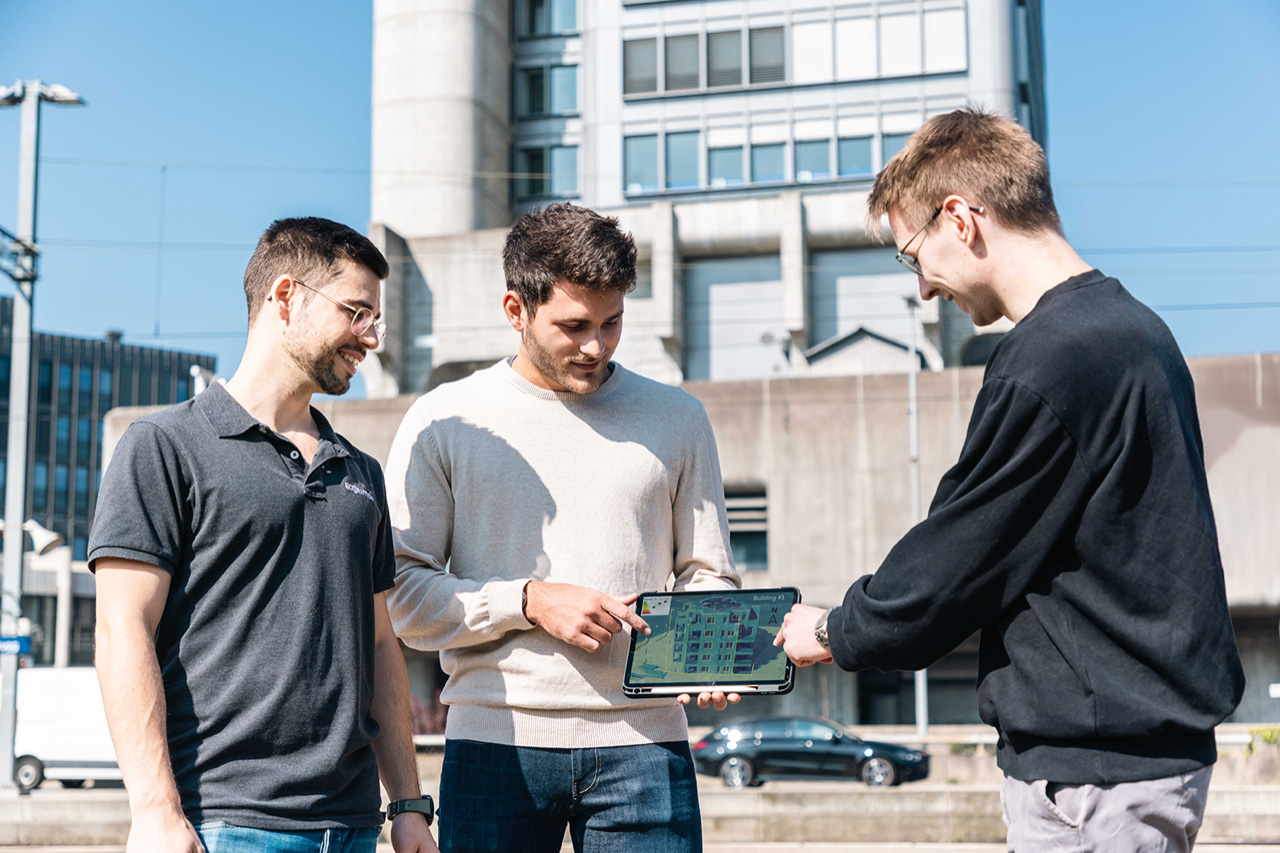Pioneering Swiss Building Renovation with Computer Vision and Digital Twins
Buildings in Switzerland use about 40% of the country's energy. We are developing a system to create digital models of physical buildings to make the renovation process more efficient.
Switzerland’s long-term climate strategy states that existing buildings should no longer generate greenhouse gas emissions by 2050. Many old houses will need better isolation and updated heating, ventilation, and air conditioning systems to reduce their overall heat demand. Finding the optimal way to renovate each individual building takes time and manual work. The renovator needs to know the size and location of the windows and doors, for example, or what materials were used throughout the building shell in the walls, floors, and ceilings.
Our institute collaborates with the industry partner Ecolution Engineering, a company specialised in energy-efficient and sustainable building solutions, to create an automated process for assessing a building’s energy status and renovation potential. Manual data recording is time-consuming – six to eight hours per building – and it usually disrupts data flow and produces merely approximate values. Our project aims to automate this process.
The project goal is to produce a three-dimensional digital twin of a house quickly, using two-dimensional blueprints and/or on-site 3D scans of the building and its surroundings. The project started with a feasibility study in July 2024, and it includes other subprojects to dig deeper into the topic. In these later steps, our project team will for example suggest new methods and evaluate different scenarios, such as buildings without any existing 2D plans.
All partners bring their strengths to the project. Ecolution is the expert in collecting relevant benchmark data from homes. The research partners FHNW and UZH use their competence to evaluate public datasets and develop their own, in combination with neural networks and computer vision models. The researchers then process Ecolution’s data into a standardised 3D model that the company can use for accurate heat demand calculations in an automated way.
During the collaboration, our project team collects detailed spatial data using the latest technologies, such as optical cameras, laser scanning, and drones. We process the data through point-cloud registration, mesh generation, as well as object detection and segmentation, powered by artificial intelligence and computer vision. Ultimately, we want to develop tools that allow Swiss real estate actors to estimate renovation potential in a fully automated, digital way.
Buildings are a major source of greenhouse gas emissions in Switzerland, so tackling their energy efficiency is a crucial part of our net-zero strategy. We can’t do that in the old, manual way: there are too many buildings in need of an update. Digital twins of physical buildings simplify processes for architects, property owners, and developers, while unlocking opportunities for entirely new business ideas.
Information
Partner | FHNW Institute for Data Science |
Duration | Started in July 2024; open-ended |
Funding | |
Project Team | Susanne Suter (FHNW Institute for Data Science) |

